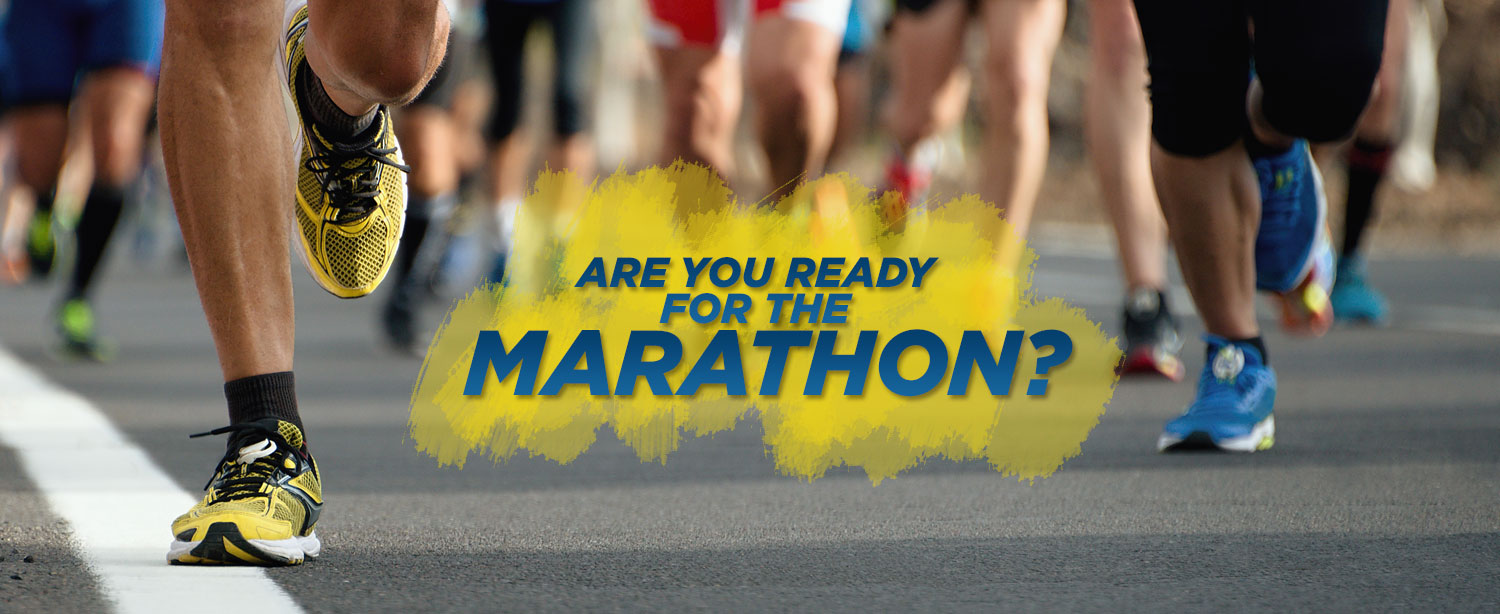The Tata Mumbai Marathon is to be held on 20th January 2018. Are you running the marathon this year? Many have been training for months for the marathon day. Are you excited or nervous about the marathon? Relax your anxieties as we take you through essential health tips that help you cruise through the marathon smoothly.
Plan your marathon in advance:
1. Correct footwear
Invest in some good quality running shoes to protect your bones, muscles, joints and tendons during your training. Depending on your weight and the type of shoe, most running shoes should last between 300 and 800 miles.
2. Drink on the Run
During your training run, have the sports drink and energy gels you intend to refuel with during the race.
3. Don’t exceed your limits
Stick to your plan when training for a marathon. Doing more miles than you’re used to in the last few weeks will hurt–not help–your race.
4. Run a Dress Rehearsal
Four or five days before the marathon, do a two- or three-mile marathon-pace run in your marathon outfit and shoes. Besides boosting your confidence it will also test your endurance levels.
5. Get plenty of protein
Protein-rich foods are often associated with bodybuilders, but they’re just as important for runners. When you run, your body may use protein as fuel to keep going, so it’s important to regularly replace your stores.
6. Don’t forget core training
Remember to do regular core training, this will work the muscles in your abdomen which control posture and support the rest of your body. A strong core will make you a stronger, better runner and help prevent injuries.
7. Carbo-Load, Don’t Fat-Load
During the last three days, concentrate on eating healthy carbohydrate-rich foods and avoid fats.
You have been training for months for the marathon. Are you wondering what to do on the marathon day and how to prepare yourself on the final day? You may have many unanswered questions. Here are some expert tips from our Sports Medicine team to ace the marathon:
- Eat Breakfast
- Warm Up
- Line up Loose
- Start Slow
- Drink Early & Often
Two to three hours before the race eat a carbohydrate-rich breakfast. Breakfast restocks your body and prepares it for the run.
Do a little warm up like jogging before the marathon because you want to preserve the glycogen stores and keep the core body temperature down. It also helps keep the heart rate slightly elevated.
Fifteen minutes before the start, begin some gentle stretching. Concentrate on the muscles of the back side of your body–your calves, hamstrings, glutes, and lower back. Remember, your goal is to start the race comfortably.
Run the first two to three miles 10 to 15 seconds per mile slower than goal pace. This preserves precious glycogen stores for later in the race so you can finish strong.
Have a sports drink at the first station and every one after. Taking in carbohydrates and fluid early will help postpone or prevent serious dehydration or carbohydrate depletion later, so you’ll be a lot more likely to maintain your pace.
Here are a few marathon mistakes to avoid:
- Training without a plan.
- Improper diet intake
- You’re not prepared for common running injuries.
Everyone runs and trains differently so finding a plan that works for you is key. Be sure to follow a plan that suits your likings and needs.
Your marathon training plan also includes eating a healthy diet. Finding proper ways to fuel and refuel your body will support your performance on the day of your marathon. Make sure that your choice of fuel is the exact same one [that] you use on race day. Do not change anything on race day.
Blisters are one of the most common alignments that runners suffer from. You can avoid setbacks like this by wearing the right running shoes during training.
Talk to your doctor immediately if your body shows some signs that you are not ready for a marathon:
1. If your heart rate increases to a very high level with minimal exercise. Normally the heartbeat increases gradually with increasing level of exercise.
2. If BP rises to a very high level during running then probably you are yet not fit. A systolic BP more than 180 mm Hg and diastolic BP more than 110 mm Hg during running is considered significantly high. Normally the BP increases marginally during exercise.
3. If the BP falls instead of rising during running, then there may be some serious underlying cardiac disease and you are not fit to run.
4. If the oxygen saturation dips to a very low level during exercise or running then you are not fit for a run. Consult a doctor immediately.
5. If you feel excessively fatigued with a relatively low level of exercise, then you are not fit to run.
Wishing all the runners a healthy and fun Marathon! Our Sports Medicine experts can help you with any sports related injuries. Please find below link for more details:
https://www.kokilabenhospital.com/departments/outreach/centre/sports_medicine_clinic_-_mumbai.html


